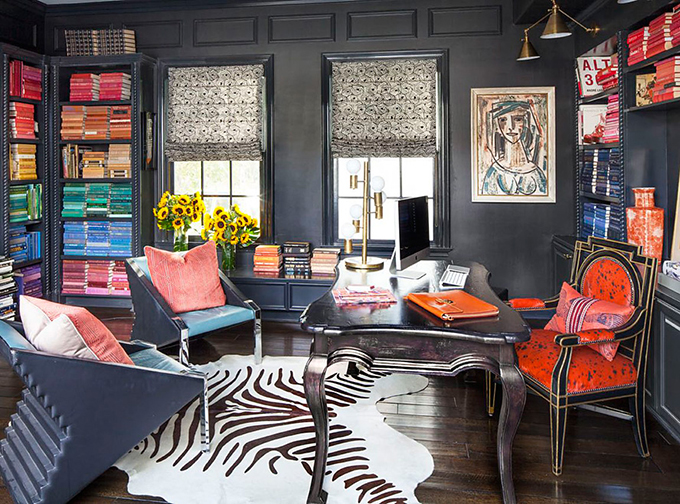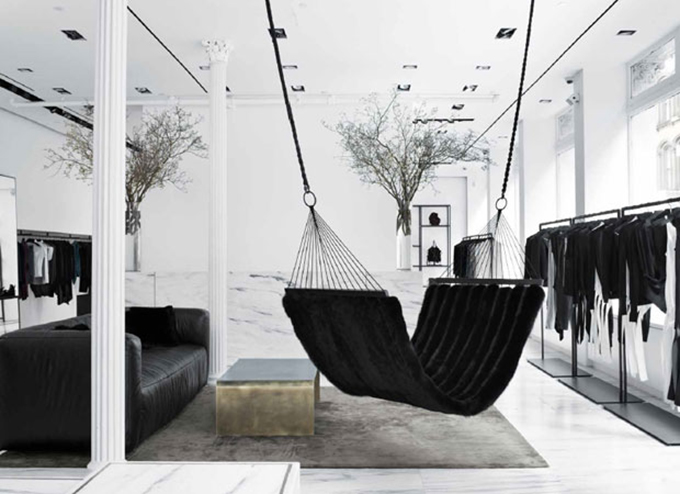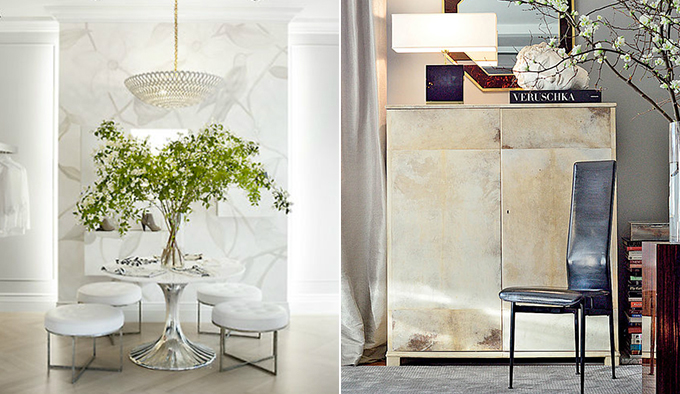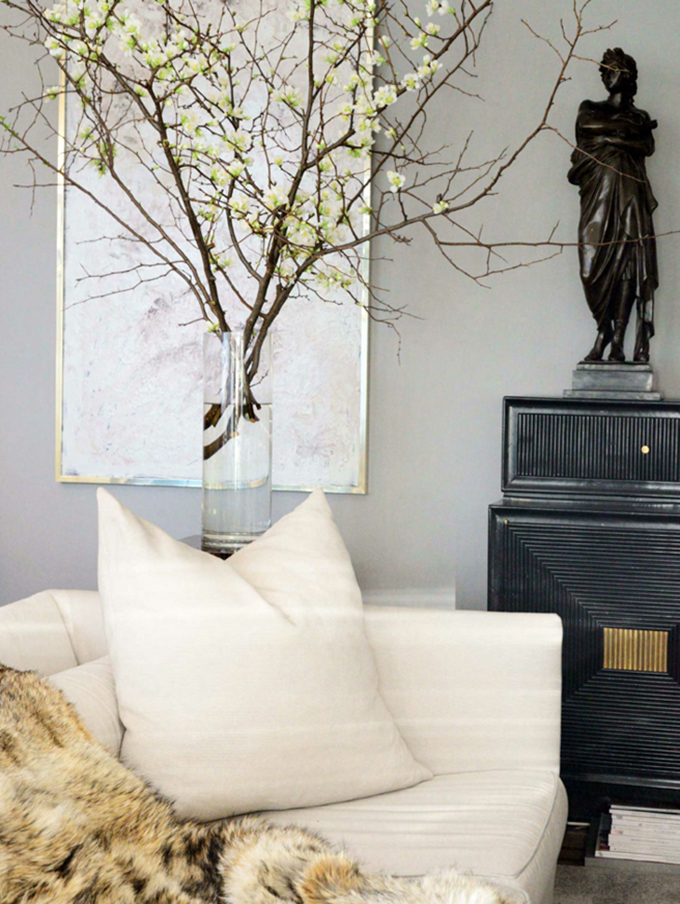It seems that common questions for those thinking about starting a collection are, firstly, what to collect and, secondly, what to do with the collection once you have amassed enough of it.
People collect for various reasons but generally fall into two categories; those who collect something out of passion for the objects and those who collect for investment. My personal collection theory is to collect only what I love. I can’t always explain why I love a certain object, only that I do and that I know I want to live with looking at it. If it so happens that the piece turns out to be a good investment, too, then so much the better.
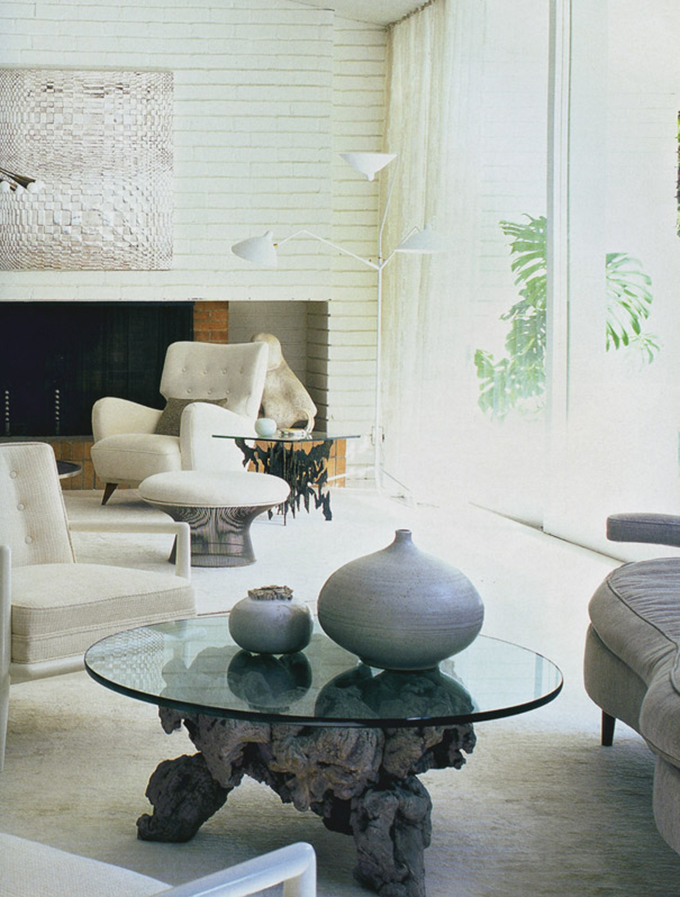
With this in mind, I recently took note of the comments of two leading designers whose work I greatly respect. Chahan Minassian runs a successful furniture gallery and design practice in Paris. Minassian often uses blue chip mid-century furnishings in many of his installations. However, he cautions “while the house and the furniture I have used are historical, I never want the space to feel like a museum.” Even when pieces are signed, Minassian likes to give them his personal twist, such as re-lacquering two Robsjohn-Gibbings armchairs in white and covering them in a Gaston y Daniela raffia. “I always want to retain the integrity of their design, but there is nothing wrong with finding a piece whose shape or cleverness you love and bringing it sensitively into the present.” Words to live by.
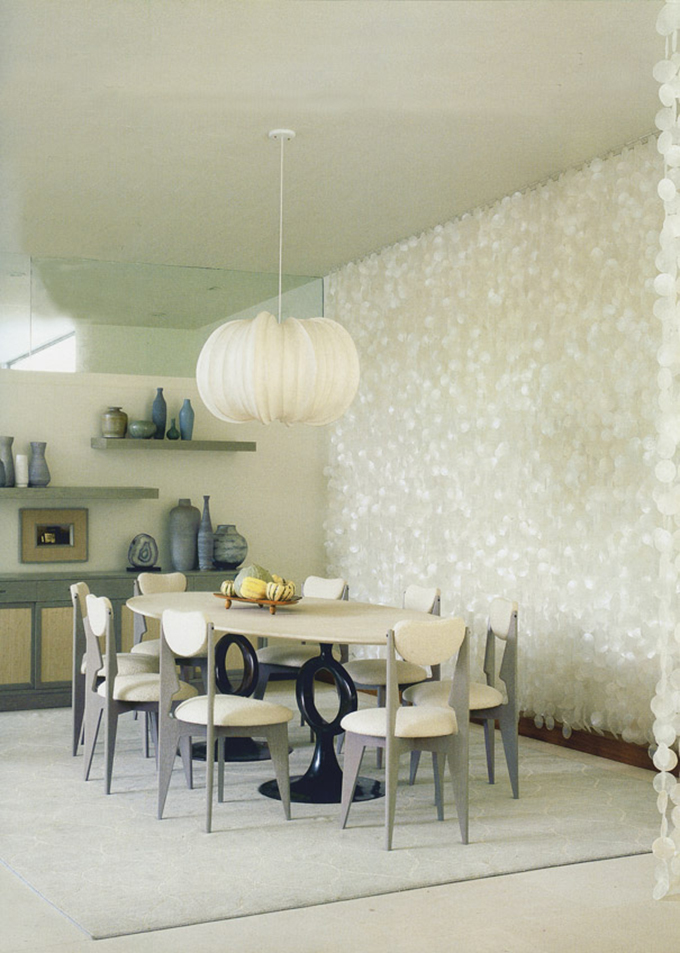
Francis Sultana is trusted with the interiors of some of the world’s biggest collectors and acts as a facilitator between artists and patrons. “I know it is an overused trope but collect outside of fashion. Use what you like where you like. You should always surround yourself with the things you love. The key is proportion, and the spacing between objects.” Beautiful things need to be showcased appropriately, so be sure that you are displaying your prized furnishings and collectibles to their greatest effect. I have seen many a collection poorly displayed, thereby diminishing the beauty and impressiveness of the collection.
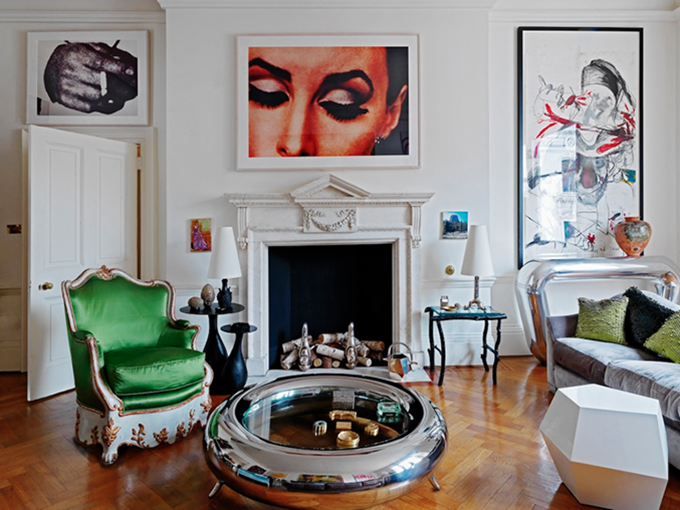
If you do collect as an investment some guidelines are useful. When buying limited edition pieces from a gallery, it is wise to ask for such details as the number of the edition. If a piece has a hefty price tag, it’s advisable to seek advice from a dealer as to its quality. Acquiring pieces at a vetted design or antiques fair can provide a similar level of assurance.
Most of all, collecting should be an adventure and be fun. It can expand people’s horizons as to how to decorate their home and even lead to friendships with artists and designers, which in turn can enrich an understanding of their work.
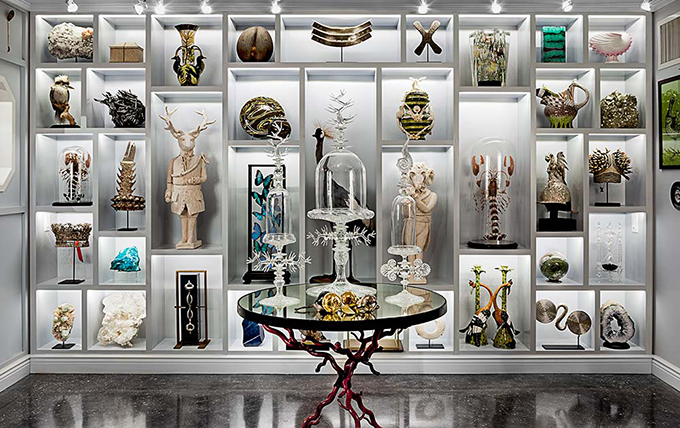 Photo of Creel and Gow, New York, NY
Photo of Creel and Gow, New York, NY
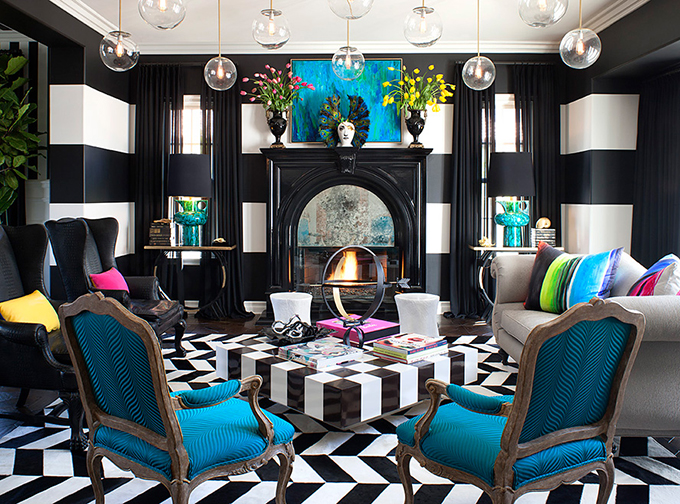 We’re loving the plays of black and white here in the livingroom, realized in stripes, checks and chevrons, mixed with the peacock blue on the French style chairs.
We’re loving the plays of black and white here in the livingroom, realized in stripes, checks and chevrons, mixed with the peacock blue on the French style chairs.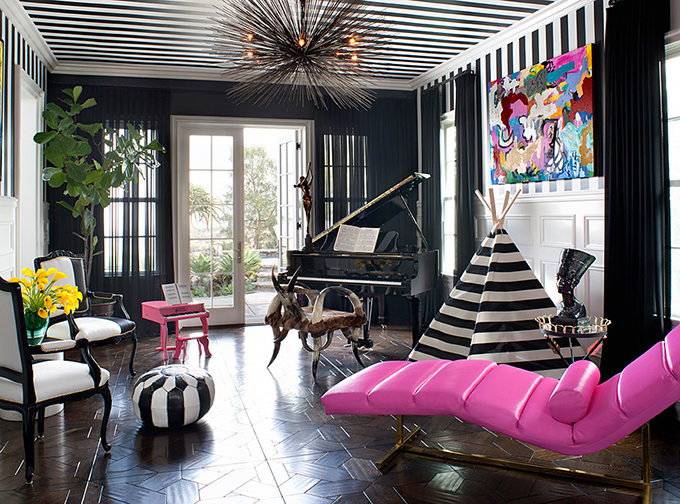 And, really, shouldn’t every room have a hot pink upholstered chaise? Absolutely, especially when paired up with a black and white teepee. Tout chic.
And, really, shouldn’t every room have a hot pink upholstered chaise? Absolutely, especially when paired up with a black and white teepee. Tout chic.
